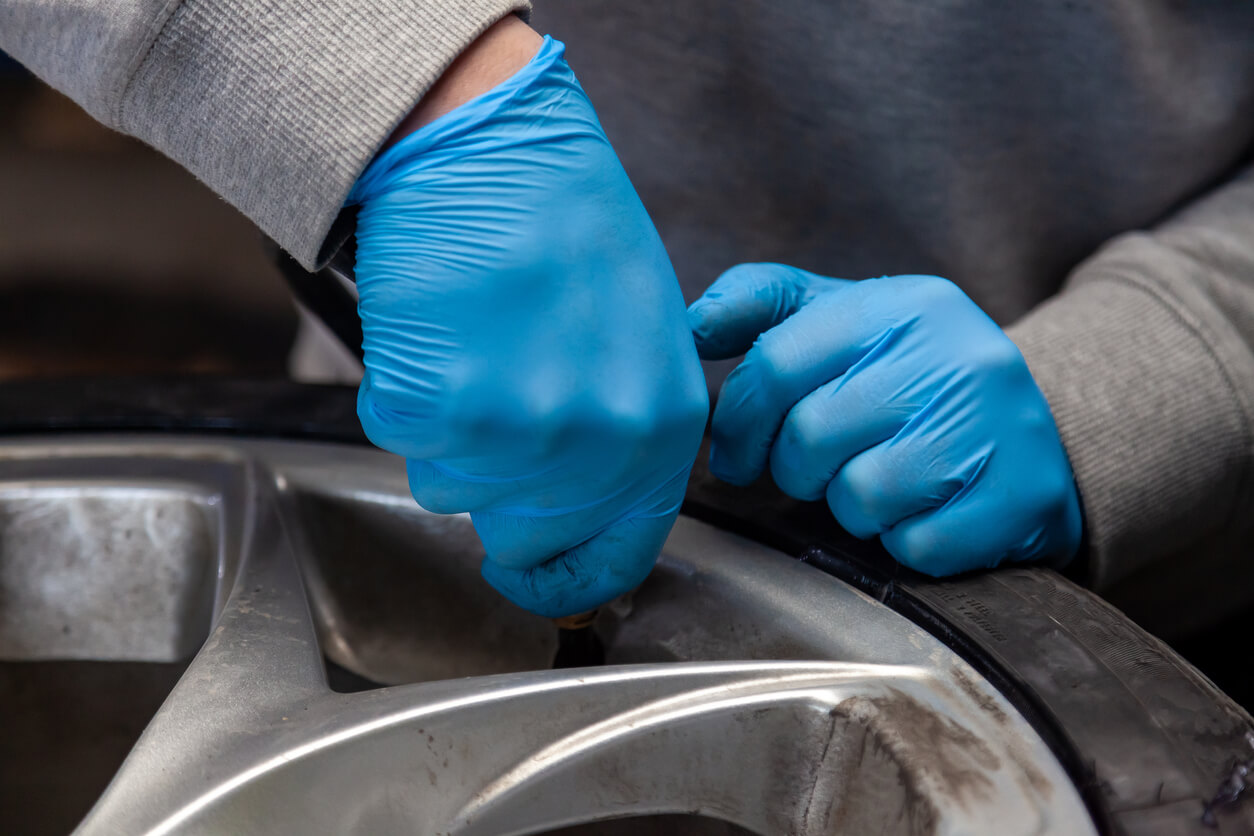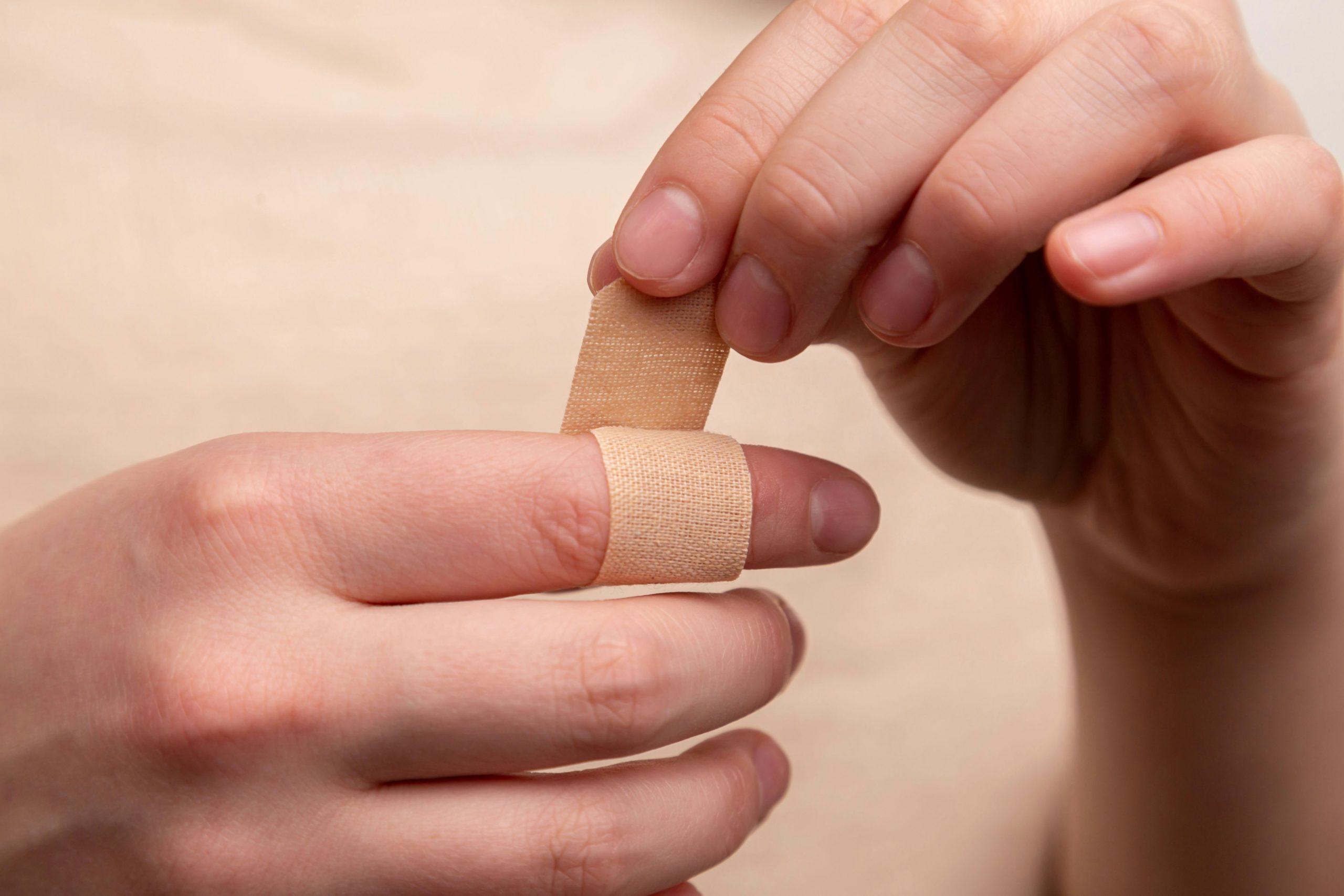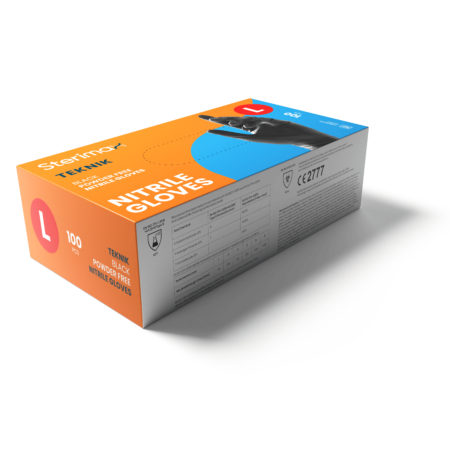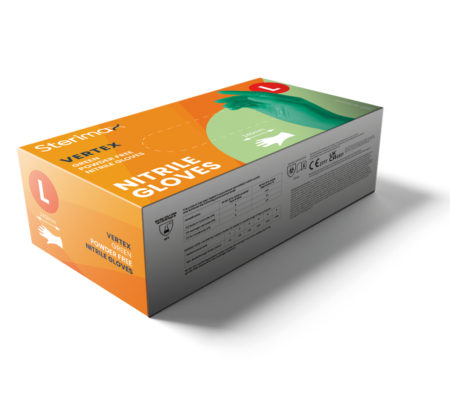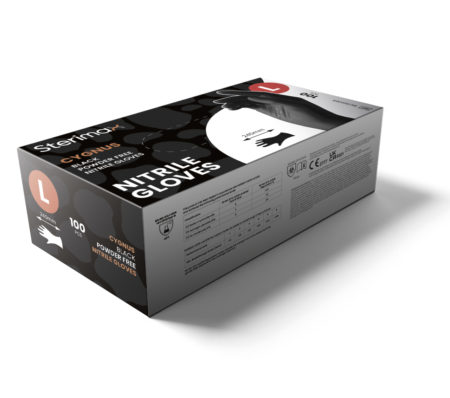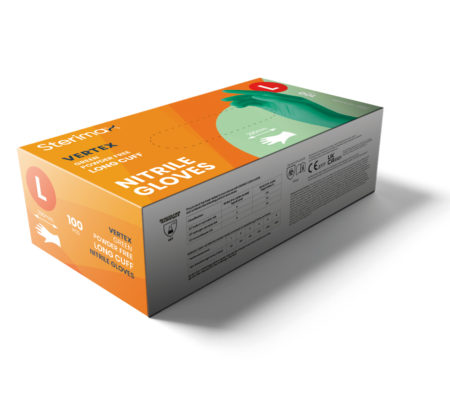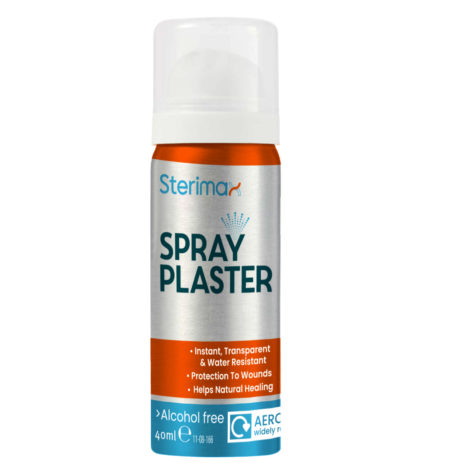What’s blue, black and purple, stretchy all over and easy to wear? Nitrile!
Nitrile gloves are the most widely used disposable gloves, suitable for medical, scientific, industrial and manufacturing applications.
They are available sterile and non-sterile and in various thicknesses and colours to suit any use case, from chemical handling to surgery.
This article will explore nitrile gloves to help you decide what gloves are best for you. Let’s start with the most pressing question of all:

What is nitrile?
Nitrile is a synthetic copolymer rubber. It is made by polymerising acrylonitrile and butadiene in a heated chamber with activators.
Nitrile is widely used to replace latex rubber, an allergen, and vinyl, which has low chemical resistance.
Nitrile is relatively easy to manufacture, producing chemically-resistant gloves that offer a good range of motion and feel through the glove.
What are nitrile gloves best for?
Nitrile gloves are designed specifically for scientific and medical applications as a hypoallergenic alternative to latex.
Nitrile is strong, flexible, tear-resistant, inert to common chemicals, and suitable for a wide range of applications.
Here are a few examples:
- Hospitals
- Surgeries
- Care homes
- Dentists
- Pharmacies
- Cleaning facilities
Are nitrile gloves food safe?
Yes, nitrile gloves are 100% food-safe because nitrile is allergy-safe. Food manufacturers always use nitrile gloves (powder-free) because they are the optimal choice.

Are nitrile gloves chemically resistant?
Nitrile gloves are highly resistant to most chemicals, with a few limitations. You should not use nitrile gloves when handling concentrated acids, caustics and chemicals, but you can use them for handling mild and diluted chemicals.
Here is a quick list of the chemicals nitrile resists:
- Acetone
- Ethanol
- Isobutyl
- Isopropyl
- Methanol
- Nitric acid 10%
- Formaldehyde 15%
Note: You handle these chemicals at your own risk. When handling dangerous chemicals and acids, you should use thick gloves of a material rated for the substances you handle, and you should never take risks.
What are powdered nitrile gloves?
Powdered nitrile gloves are made with corn starch powder as a donning agent, making it easier to slip the gloves on. However, these gloves are not recommended for food handling and clinical environments due to the risk of powder cross-contamination.
What is the difference between blue and black nitrile gloves?
Black nitrile gloves are industrial-grade gloves; they are thicker, formulated for oil, grease and lubricant resistance, while blue nitrile gloves are medical-grade gloves carefully tested to safeguard workers from hazards.
While both gloves are sometimes interchangeable with the same formulation, black and blue nitrile gloves can have a slightly different formulation. When in doubt, blue nitrile offers dependable protection for all applications but is thinner.
What are purple nitrile gloves?
Purple nitrile gloves are examination gloves used for medical examinations and other procedures. They have moderate to high chemical resistance and are used interchangeably with blue gloves, offering the same protection.
What is the optimal nitrile glove thickness?
Nitrile gloves are available in several thicknesses; thicker gloves mean greater protection, but it also means a reduced range of motion and feel.
Gloves below 2mil are considered thin, and gloves over 4mil are thick. Thick gloves are a lot stronger, so they are ideal for industrial applications, while thin gloves offer better mobility and are a better fit for medical and scientific applications.

How long can you wear nitrile gloves?
Disposable nitrile gloves should be thrown out and replaced after every use.
Most medical and scientific environments have glove disposal rules (usually a single-use policy), so you should follow what is recommended.
Ultimately, removing nitrile gloves turns them inside out, so you will throw them away after every use anyway. Do not reuse the same gloves!
Nitrile gloves for electrical work
Non-disposable nitrile gloves (the thick, insulated variety) can help protect from electrical hazards because nitrile does not conduct electricity. However, the gloves need to be sufficiently thick and undamaged. Unfortunately, copper wire easily punctures nitrile, so disposable nitrile gloves are unsuited for electrical work.
Nitrile gloves and bleach
Nitrile is unaffected by bleach and will not degrade with prolonged exposure, so you can use nitrile gloves for general cleaning purposes.
Nitrile gloves and nitric acid
Nitrile gloves can only handle mild nitric acid concentrations, usually below 70%, and only for short periods.
Nitrile gloves and petroleum jelly
Nitrile is unaffected by petroleum-based products, including petroleum jelly and other gels and jellies. You can safely use the gloves with Vaseline on your hands.
Nitrile gloves vs vinyl gloves
Vinyl gloves are used in environments with a low risk to the wearer from hazardous substances, infection and disease. Nitrile is used in infectious environments and when there is a high risk of personal injury.
Nitrile gloves are superior to vinyl gloves in every way except one – cost.
However, vinyl is more than satisfactory for basic use cases.
Nitrile glove attributes include:
- Resistance to weak acids
- Resistance to oils and fuels
- Strong
- Abrasion resistance
- Puncture resistance
- Latex-free
- Fully recyclable
- Suitable for sterile environments
Vinyl glove attributes include:
- Flexible
- Loose-fitting
- Tear-resistant
- Inexpensive
- Weak chemical resistance
- Latex-free
- Suitable for short-term use
Nitrile gloves vs latex gloves
Compared to latex gloves, nitrile gloves are thicker with greater tear resistance. The downside to this is reduced range of motion, so surgeons sometimes prefer latex, although only when the patient has no latex allergy.
Nitrile gloves are suitable for a wider range of applications than latex gloves, and most people reach for a pair of nitrile gloves given the option. Nitrile gloves are stronger and have better chemical resistance than latex gloves.
Are nitrile gloves recyclable?
While nitrile is fully recyclable, nitrile gloves are only recyclable when not contaminated. Gloves contaminated with chemicals and clinical waste are considered a biohazard and are incinerated to protect human health.
Why are nitrile gloves so expensive?
Nitrile gloves are expensive compared to other rubber gloves because they have a more complex manufacturing process. Imbalances in the supply chain have also caused a nitrile gloves shortage. A critical shortage of medical gloves has also contributed to higher prices.
